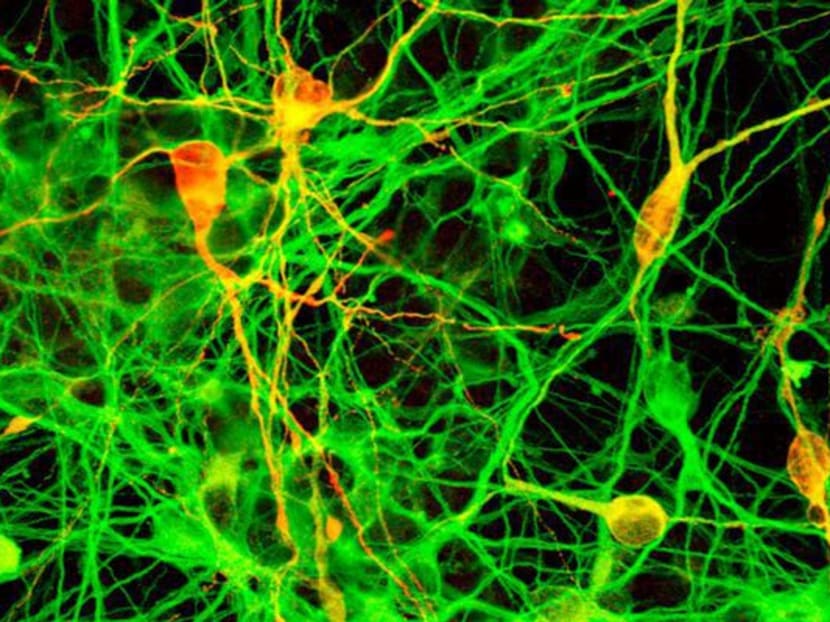Risk-taker? It’s in your genes, NUS collaboration suggests
SINGAPORE — The willingness to take risks could be influenced by a person’s genes, according to a study by a team including researchers from the National University of Singapore (NUS) published yesterday (June 16).

Dopaminergic neurons (stem cells). Photo: Reuters
SINGAPORE — The willingness to take risks could be influenced by a person’s genes, according to a study by a team including researchers from the National University of Singapore (NUS) published yesterday (June 16).
The study, a collaboration with researchers from the University of California, Berkeley, and the University of Illinois at Urbana-Champaign (UIUC), found that strategic decisions in a competitive betting game were influenced by specific dopamine-regulating genes in a person’s brain. Dopamine is a neurotransmitter that helps control the brain’s reward and pleasure-seeking system.
NUS said in a statement issued today that the study reveals how people have hardwired biases in decision-making and strategic thinking that can impact business decisions, including those taken at the national and international levels.
“The current study is unique in showing how a set of dopamine genes jointly impact strategic thinking,” said NUS Economics Professor Chew Soo Hong, who was part of the team that carried out some of the first studies showing how dopaminergic genes are involved in risk-taking and social and strategic decision-making.
The study “shows how different dopamine genes contribute to how individual thinking differs in a winner-takes-all competitive game”, he added.
BETTING AND LEARNING
A total of 217 Chinese students from Singapore and Beijing were recruited for the study, which was carried out at NUS in collaboration with Assistant Professor Ming Hsu from the Haas School of Business at University of California, Berkeley, and Mr Eric Set, a graduate student from the Department of Economics at UIUC.
A competitive game called patent race, commonly used by economists to study competitive behaviour in a laboratory setting, was administered. The game involves one person betting, via computer, with an anonymous opponent.
“We know from brain imaging studies that when people compete against one another, they actually engage in two distinct types of learning processes,” Mr Set said. “One type involves learning purely from the consequences of your own actions, called reinforcement learning. The other is a bit more sophisticated, called belief learning, where people try to make a mental model of the other players, in order to anticipate and respond to their actions.”
The researchers focused on 12 dopamine-regulating genes in the study, and discovered distinct differences with different variants or mutations of the genes.
It was found that differences in belief learning — the degree to which players were able to anticipate and respond to the actions of others, or to imagine what their competitor is thinking and respond strategically — was associated with variation in three genes which primarily affect dopamine functioning in the medial prefrontal cortex. In contrast, differences in trial-and-error reinforcement learning — how quickly they forget past experiences and how quickly they change strategy — was associated with variation in two genes that primarily affect striatal dopamine.
“The high degree of overlap hints at the power of studying decision-making at the neural and genetic levels under a single mathematical framework,” NUS said in its statement.
The research was funded by Singapore’s Ministry of Education, the American National Institute of Mental Health and the AXA Research Fund. Findings from the study were published yesterday in the online early edition of the Proceedings of the National Academy of Sciences. CHANNEL NEWSASIA





